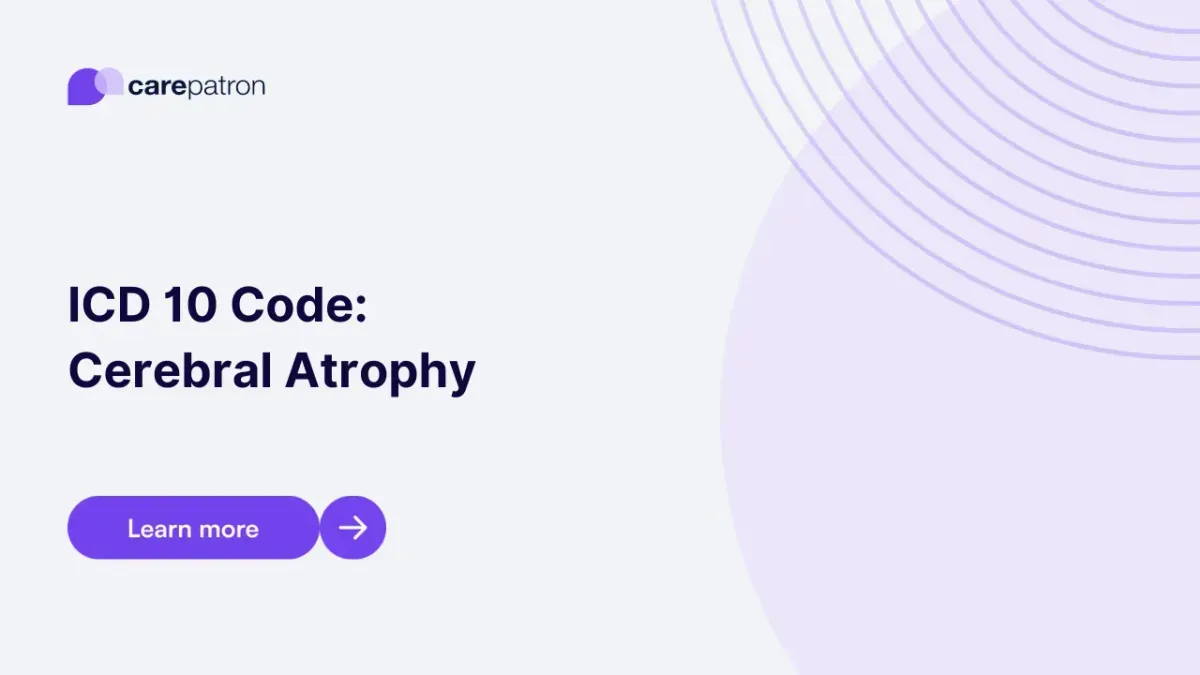
Cerebral Atrophy ICD-10-CM Codes
Explore cerebral atrophy ICD-10-CM codes, including G31.0 and G31.9, plus related degenerative nervous system diseases, symptoms, and diagnosis tips.
Use Code
Commonly asked questions
Yes, one specific ICD-10-CM code directly references cerebral atrophy: G31.0—Circumscribed brain atrophy. This code is used for cases where localized brain tissue loss is identified, making it the only named cerebral atrophy code currently in use.
Cerebral atrophy is typically diagnosed using brain imaging studies such as MRI or CT scans, which reveal shrinkage of brain tissue. Neurologists may also assess cognitive and motor function to evaluate the clinical impact of the atrophy.
There is no cure for cerebral atrophy, but treatment focuses on managing the underlying condition and slowing progression through medications, cognitive therapy, or physical rehabilitation. Supportive care may include speech therapy, occupational therapy, and medications for symptoms like seizures or mood disturbances.
EHR and practice management software
Get started for free
*No credit card required
Free
$0/usd
Unlimited clients
Telehealth
1GB of storage
Client portal text
Automated billing and online payments
